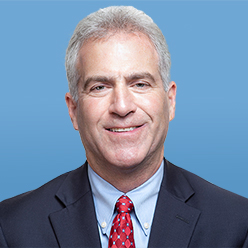Henry Kissinger famously remarked some time ago that Iran must decide whether it wants to be "a nation or a cause." For decades, U.S. presidents of both parties have been trying to coax Tehran toward the former and away from the latter.
Most recently, the U.S.-led global nuclear agreement with Iran - with its scores of billions in sanctions relief that President Obama hoped Iran would invest to improve the living standards of its people - was designed to convince Tehran to abandon its revolutionary ways and become a nation in good standing.
But if Tehran's political crackdown before its upcoming Feb. 26 elections for the Assembly of Experts and Parliament is any indication, the Islamic Republic shows few signs of moderating its ideological impulses. Thus we should expect more of the revolutionary fervor that drives Iran's efforts to destabilize Sunni regimes, impose its will on their successors and, in that way, advance its hegemonic ambitions.
All of that, in turn, presages no new day in U.S.-Iranian relations, as Obama and his top advisers hoped to create in inking the nuclear deal. Instead, it sets the stage for a still-larger challenge for the next president, with Tehran deploying the financial windfall from that deal to expand its military, advance its weaponry and strengthen its terrorist proxies.
Iran's ruling class has long played a cat-and-mouse game with the nation's limited democratic processes - promoting Iran's democratic trappings to a naive Western audience that seeks its global integration while, behind the scenes, ensuring that no real democracy will unseat the clerics who run things.
The Guardian Council, an unelected body of 12 Islamic jurists that vets electoral candidates, recently disqualified 635 of the 801 people who sought to run for seats on the 88-member Assembly of Experts - the body that nominally oversees Supreme Leader Ali Khamenei, the nation's ultimate decision-maker, and that will choose his successor.
That Iran has a supreme leader, Assembly of Experts and Guardian Council makes a mockery of true democracy to begin with. But the council's decision to reject so many candidates on ideological grounds makes clear that it will both protect and advance the hard-line ideological fervor that dates back to the 1979 revolution and continues to fuel the regime. Among those rejected for run for the assembly was Hassan Khomeini, grandson of Iranian revolutionary founder Ayatollah Ruholla Khomeini, due to his ties to reformist politicians.
A week before purging the Assembly of Experts candidates, the Guardian Council rejected more than 6,500 of the 12,000-plus candidates for the 290-seat Parliament (the Majlis), Human Rights Watch reported. (The Interior Ministry had previously concluded that 90 percent of the 12,000-plus candidates were legally qualified, but the Guardian Council then vetted them on ideological grounds.)
Overwhelmingly rejected by the Council were political reformers, with a spokesman for the reformists' policy committee reporting that only 30 of 3,000 reformist candidates were approved. Among the rejected were Rasoul Montajabnia, the vice president of the pro-reform Etemad Melli Party; Majid Farahani, head of the reformist Nedaye Iranian Party; and Akbar Alami, a former reformist member of Parliament.
The Guardian Council's actions are just a piece of a larger anti-reformist puzzle that dates to the 1979 revolution, through which Khomeini's supporters toppled the Shah, a strong U.S. ally, and created the Islamic Republic. Since then, administrations of both parties in Washington have sought to build private ties to so-called "moderate" forces in Tehran, usually exaggerating both their influence and their prospects for power.
Iran's clerical rulers have been on especially high alert for threats to their rule since the massive protests that followed the disputed presidential election of June 2009, which kept the hard-line President Mahmoud Ahmadinejad in power. Those protests brought millions of people to the streets of Tehran and other major cities, many of whom mocked Khamenei by chanting "Death to the dictator."
In the crackdown that followed, hundreds of political activists and peaceful protestors were arrested, detained or imprisoned, and some of the most high-profile of them remain in prison. In addition, Tehran has kept leaders of the "green revolution" that emerged in the aftermath of that election under house arrest, including Mir Hossein Mousavi and Mehdi Karoubi, as well as Mousavi's wife Zahra Rahnavard.
Thus, less than a year before Obama's successor takes office, Washington should dispense with any hopes for Iranian moderation that were nurtured by the recent nuclear deal, and prepare to confront the same tough-minded, ideologically driven regime in Tehran with whom it's been dealing for nearly four decades.
Lawrence J. Haas, senior fellow at the American Foreign Policy Council, is author of the new bookHarry and Arthur: Truman, Vandenberg, and the Partnership That Created the Free World.
Want these sent to your inbox?
Subscribe
